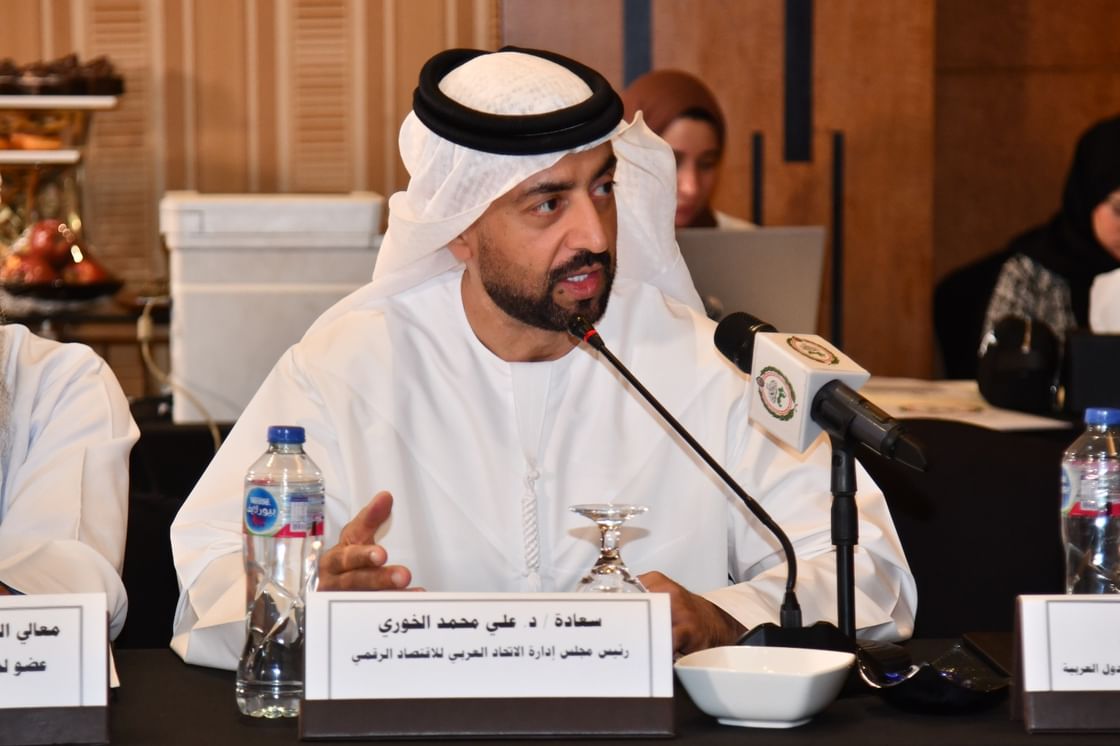December 16, 2018
Ahmed Aboul Gheit, Secretary-General of the League of Arab States, said that the rapid and successive developments in information technology witnessed in our world today are resulting in a new type of economy: the digital economy. This economy has begun to play a tremendous role in achieving economic development by creating real investment opportunities across all fields and sectors, as well as in achieving financial inclusion, thus supporting economies in keeping pace with global economic modernity.
On the sidelines of the first Arab Digital Economy Conference, held in Abu Dhabi under the patronage of His Highness Sheikh Mohammed bin Zayed Al Nahyan, Crown Prince of Abu Dhabi and Deputy Commander of the UAE Armed Forces, he explained that the ongoing war between major global powers reflects, in an important aspect, a race to control the digital technology market and its future, particularly fifth-generation (5G) technology, given the enormous gains. There is no aspect of contemporary societies that digital technology does not control and guide, especially since the returns on innovation in this technology far outweigh profit rates in other sectors. Indeed, mastering it propels other economic sectors forward. Aboul Gheit continued: “We are witnessing a comprehensive revolution driven by digital technology and led by artificial intelligence and big data applications. Some have called it the Fourth Industrial Revolution, suggesting its profound impact on various aspects of life, similar to the First Industrial Revolution. We must never allow our nations to emerge from this battle empty-handed, or to be content with a backward position in this fierce competition.”
The Secretary-General of the League of Arab States added that since creativity and innovation are the primary drivers of this new revolution, our Arab world finds itself faced with only two options: innovation or extinction. Either we hasten to prepare our educational infrastructure and employment markets to keep pace with these profound changes in the structure of the modern economy, or we face the risk of marginalization and dwarfing.
He pointed out that the Arab region faces extraordinary challenges that compel its countries to prioritize issues of security and peace more than others. Governments are making remarkable and bold efforts to keep pace with modern economic mechanisms and concepts, efforts that must receive support and backing from all. Furthermore, financial reform policies and improvements to the legislative and procedural climate must continue to unlock the full economic potential of Arab societies and attract more direct investment. He emphasized that the time has come for Arab countries to optimally utilize their abundant human capabilities, important and pivotal geographical locations, and sufficient financial and geological resources to achieve the desired renaissance and position our countries in the position they deserve among the ranks of advanced and developed nations. He pointed out that the size of Arab e-markets does not exceed 1% of the global e-market, which is incongruous with the size of the Arab economy. He noted that it is unreasonable for Arab citizens to be unable to engage effectively with financial technology applications that are sweeping the banking world at an unprecedented rate of acceleration, especially as the impact of synergies between technological applications, particularly in the field of communications, on the one hand, and banking on the other, becomes more apparent. These applications play a role in achieving financial inclusion. He stressed that the League of Arab States always seeks to keep pace with developments taking place around it in all fields and sectors and to adopt best practices to activate and enhance the performance of the joint Arab action system. In this context, it is worth noting the partnership between the League of Arab States and the United Nations Economic and Social Commission for Western Asia within the framework of the Internet Governance Roadmap Initiative, regionally and internationally, making the Arab Group one of the first regional groups working to formulate a roadmap for Internet governance at the regional level.
He continued, “There is a development in some Arab countries that is not overlooked. Some Arab countries—including the United Arab Emirates—occupy an advanced position among the countries of the world in terms of internet usage, in light of the increase in the rate of cross-border data flow linking our Arab region to the rest of the world over the past decade, exceeding 150-fold. In this regard, several Arab countries have achieved significant leaps in the digital consumption sector, in terms of increased rates of reliance on smartphones and the use of social media.”










